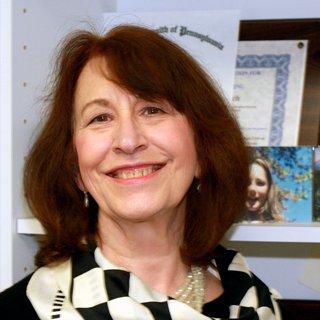Dr. Sharon Lynch

As a science educator and researcher, Dr. Lynch's work focused on the intersection of equity and excellence, exemplified by her book, Equity and Science Education Reform (2000). Her most recent work on inclusive STEM high schools drew the attention of the White House policymakers and others interested in improving opportunity to learn in STEM fields.
Dr. Lynch worked to understand how school-level education policies and innovations could help all students to succeed in science, technology, engineering, and mathematics (STEM), and increase the number of students underrepresented in STEM who pursue STEM college majors, jobs, and careers.
- Opportunity Structures for Preparation and Inspiration (OSPrI). Dr. Lynch was the Principal Investigator (PI) for this NSF-funded project on inclusive STEM High Schools that included school and student level case studies.
- iSTEM: The NSF-funded iSTEM study, directed by Barbara Means of SRI International, sought to understand the impact of STEM high schools in three states. Dr. Lynch was a Co-PI on this study.
- Together, these two studies sought to create a model for inclusive STEM-focused high schools and to understand if they are effective, sustainable and worthwhile as a policy initiative. Concentrating on schools that recruit underrepresented minority students, they also explored how the STEM high schools could partner with businesses and industry and institutions of higher education to boost success in STEM careers for underrepresented students and stimulate local economies.
- SCALE-uP: This NSF-funded research program studied the effectiveness middle school science curriculum materials and diverse learners as they scaled up in a large schools system. Dr. Lynch was the PI.
Dr. Lynch was appointed as a member of the editorial board of Science Education. She served as President-Elect, President, and Past-President (2011, 2012 and 2013 respectively) of the National Association for Research in Science Teaching (NARST), and served as a Board member in prior years. From 2008-2010 she was a Program Director for the Directorate of Education and Human Resources of the National Science Foundation.
Dr. Lynch taught high school and middle school science. She was a Fulbright Fellow in Poland and a NISE Fellow. She taught masters level courses in science education and doctoral courses in curriculum and instruction at GW’s Graduate School of Education and Human Development.
Education
Ph.D., Wayne State University
M.S., Wayne State University
B.S., Wayne State University
Publications
Means, B., Wang, H., Young, V., Peters, V., & Lynch, S. J. (2016). STEM-focused high schools as a strategy for enhancing readiness for postsecondary STEM programs. Journal of Research in Science Teaching. DOI: 10.1002/tea.21313
Spillane, N. K., Lynch, S. J., & Ford, M. R. (2016). Distributing leadership in inclusive STEM High Schools: A way to increase opportunities for underrepresented students. Kappan, May, pp. 54-59.
Lynch, S. J. (2015, July 14). Science for all: A new breed of schools is closing achievement gaps among students and may hold the key to a revitalized 21st-century workforce. Scientific American, 3013 (2). This article is from the In-Depth Report Building the 21st-Century Learner.
Lynch, S. J., Peters Burton, E., & Ford, M. (2014). Building STEM Opportunities for all. Education Leadership, 72 (4), 54-60.
Lynch, S. J., Pyke, C. and Grafton, B. H. (2012). A retrospective view of a study of middle school science curriculum materials: Implementation, scale-up, and sustainability in a changing policy environment. Journal of Research on Science Teaching, 49, 305–332. doi: 10.1002/tea.2100.
Lynch, S. J., Pyke, C. and Grafton, B. H. (2012). A retrospective view of a study of middle school science curriculum materials: Implementation, scale-up, and sustainability in a changing policy environment. Journal of Research on Science Teaching, 49: 305–332. doi: 10.1002/tea.2100.
Lynch, S. J. (2012). Equity and US science education policy from the GI Bill to NCLB: From opportunity denied to mandated outcomes. In Research in Science Education; Vol. 5, G. DeBoer (Ed.), The role of public policy in K-12 science education. Greenwich, CT: Information Age Publishing.
Lynch, S. J. (2012). ISO metaphor and theory for scale-up research: Eagles in the Anacostia and activity systems. In B. Fraser, K. Tobin, & C. McRobbie (Eds.), Second international handbook of science education Springer Publications.e5u.
Rethinam, V., Pyke, C., & Lynch, S. (2008). Using multilevel analyses to study individual and classroom factors in science curriculum effectiveness. Evaluation and Research in Education, 21 (1), 18-4.
Taymans, J., Marotta, S., Lynch, S., Riley, D., Ortiz, D. M., LaFauci Schutt, J. M., Mallery, C. J., & Embich, J. L. (2008). Adoption as a diversity issue in professional preparation: Perceptions of preservice education professionals. Adoption Quarterly, 11 (1), 24-4.
Lynch, S., Taymans, J. Watson, W., Ochsendorf, R., Pyke, C. & Szesze, M. (2007). Effectiveness of a highly-rated science curriculum unit for students with disabilities in general education classrooms. Exceptional Children, 73 (2), 202-22.
Lynch, S., Taymans, J., Watson, W., Ochsendorf, R., Pyke, C., & Szesze, M. (2007). Effectiveness of a highly-rated science curriculum unit for students with disabilities in general education classrooms. Exceptional Children, 73 (2), 202-22.
Lynch, S., Szesze, M., Pyke, C., & Kuipers, J. (2007). Scaling-up highly rated middle science curriculum units for diverse student populations: Features that affect collaborative research, and vice versa. In B. Schneider (Ed.), Scale-up in Practice, Volume II. Lanham, MD: Rowman and Littlefield Publishers, In.
Lynch, S., Kuipers, J., Pyke, C., & Szesze, M. (2005). Examining the effects of a highly rated science curriculum unit on diverse students: Results from a planning grant. Journal of Research in Science Teaching, 42, 912-94.
Lynch, S., Kuipers, J., Pyke, C., & Szesze, M. (2005). Examining the effects of a highly rated science curriculum unit on diverse students: Results from a planning grant. Journal of Research in Science Teaching, 42, 912-94.
Pyke, C., & Lynch, S. (2005). Mathematics and science teachers' preparation for the National Board of Professional Teaching Standards certification. School Science and Mathematics, 105 (1), 25-3.
Lynch, S. (2000). Equity and science education reform. Mahwah, NJ: Lawrence Erlbaum. and Associates, Inc.

